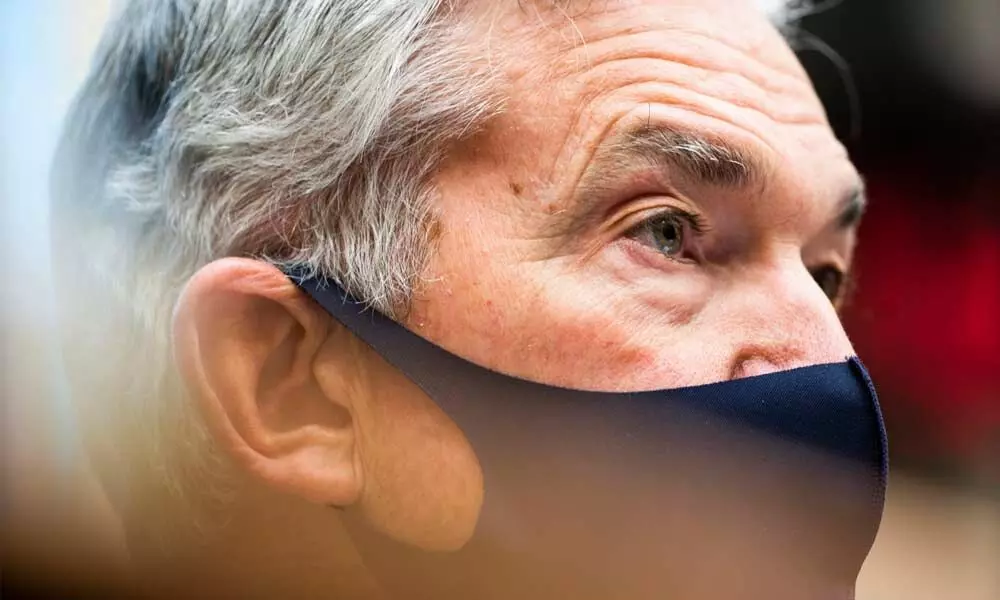The Fed needs more emergency powers, not less
Section 13(3) of FRA can deter Fed’s powers
image for illustrative purpose

Republican Senator Pat Toomey pushed for a provision that would shut down the facilities set up to mitigate the Covid-19 crisis and require the Fed to return unused CARES Act funds (the latter of which the central bank already agreed to do)
The pandemic relief deal that Congress struck this week is long overdue. Unfortunately, the package includes a provision that threatens to make this and future crises worse, by limiting the emergency powers of the Federal Reserve.
At issue is Section 13(3) of the Federal Reserve Act, which grants the central bank broad powers to make loans and otherwise keep money flowing in "unusual and exigent circumstances." Added to the central bank's arsenal amid the Great Depression, the authority has proved invaluable in recent decades. During the 2008 financial crisis, it allowed the Fed to head off a deeper recession by providing support to institutions ranging from investment banks to money-market mutual funds. When the pandemic hit, the central bank went even further - offering direct credit to companies and municipalities - to try to ensure that a cash crunch wouldn't add to the economic damage.
Yet for all the suffering that the Fed's actions have averted, they have also provoked the political backlash. After the 2008 crisis, legislators concerned about the controversial rescues of large banks curtailed the central bank's powers. For one, the Fed would have to get the Treasury Secretary's approval before setting up any emergency facilities. Also, those facilities would have to be broad-based, rather than tailored to a single individual, partnership or corporation. Ever since, officials, including current Chairman Jerome Powell, have warned that the changes could prevent the central bank from providing the much-needed support in a crisis.
The restrictions haven't proven too much of an obstacle during the pandemic, in large part because the distress has been broad-based. But perhaps in part due to the political concerns, the Fed has tread carefully, with congressional funds from the CARES Act backstopping loans to struggling households, municipalities and businesses. This wasn't legally necessary: With the Treasury's approval, the Fed could have lent as long as it determined loans were backed by sufficient collateral.
Now, though, some in Congress are keen to further constrain the Fed, apparently due to concerns that a Democratic administration would somehow turn Fed emergency facilities into a tool to bail out companies and municipalities. Anyone worried that the Fed is likely to cave to presidential pressure should remember how the central bank has withstood the historically unprecedented public criticism from the Trump administration.
Still, Republican Senator Pat Toomey pushed for a provision that would shut down the facilities set up to mitigate the Covid-19 crisis and require the Fed to return unused CARES Act funds (the latter of which the central bank already agreed to do). A compromise version appears to allow the Fed more wiggle room, but leaves congressional intent murky enough to set the stage for a battle around the central bank's efforts to fight this and future crises - a political hazard that may well deter the aggressive deployment of 13(3) powers.
This is troubling. If anything, the length and complexity of congressional negotiations over a second relief package highlight the value of swift central bank action. True, the Fed can't do everything: As Chairman Powell has made abundantly clear, it has the power only to lend, not spend. But its emergency programs have done a lot of good in the last several months at negligible cost to taxpayers. They should be extended, and even expanded, as long as they are needed.
Treasury Secretary nominee (and former Fed chair) Janet Yellen has rightly noted the need to revise and enhance the 2010 Dodd-Frank financial reform legislation - in part to address the weaknesses in non-bank financial institutions and short-term funding markets that the latest crisis exposed. It will also be imperative to revisit bank stress tests, the results of which are allowing billions of dollars in capital to be paid out to shareholders starting next month - an inadvisable move given the substantial uncertainty still facing the financial sector and the economy.
This new Dodd-Frank should also roll back limitations on the Fed's emergency powers, including any restrictions contained in the latest relief legislation. In times of crisis, a creative, nimble and aggressive Fed is crucial (albeit not sufficient) to ensure an adequate response. Improvements to financial regulation, including stronger, not weaker, crisis-fighting tools, are needed to make it as effective as it can be. (Bloomberg)
Natasha Sarin

